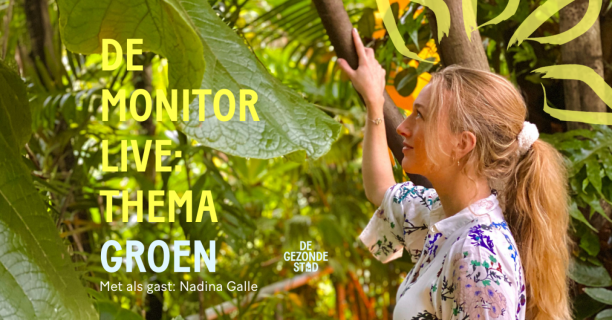In februari brachten we De Monitor uit, ons eigen onderzoek naar de duurzaamheid van Amsterdam dat zelfs de kranten haalde. Maar we gaan door... We focussen op een thema en nodigen iedere keer een geweldige gast uit die de impact maakt op het gebied van duurzaamheid in Amsterdam. Deze keer: het thema groen met als gast, ecologisch engineer, Nadina Galle!
Een half uur lang zullen we de vragen die we in de week van Thema Groen binnen hebben gekregen aan haar voorleggen en bieden we de mogelijkheid aan alle aanwezigen om zelf vragen te stellen. Meld je aan via onderstaande link!
De Gezonde Stad Monitor Live - Thema Groen: in gesprek met impactmaker Nadina Galle





